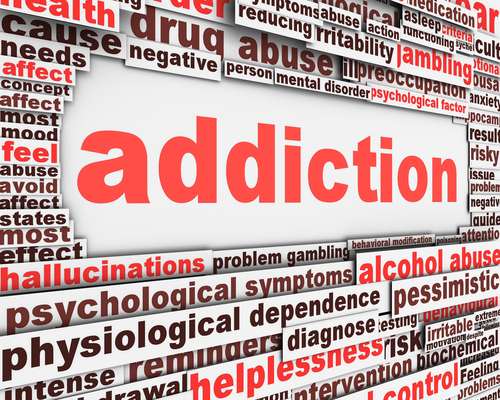Addiction Programs
For information about the Addiction programs, please contact:
John M. Ellis, LISW-S, LICDC-CW, ICCS Professor of Instruction Office: Polsky 415 Phone: 330-972-5877 Email: jellis@uakron.edu |
Why Study Addictions?
- Substance Use Disorders (SUDs) affect over 20 million Americans aged 12 and over.
- 165 million currently abuse alcohol and/or drugs.
- 31.9 million are current illegal drug users.
- 20-50% of clients receiving mental health treatment also have SUDs.
- 50% of confirmed cases of child maltreatment involve parents with substance abuse problems.
- 80% of children in foster care due to maltreatment have parents with substance abuse issues.
- 80% of persons incarcerated have a SUD upon entry to prison.
- 67% of mentally ill jail inmates have SUDs.
- 78.4% of youth in the juvenile justice system are substance-involved.
Basically, wherever you practice social work or any helping profession for that matter, you will encounter individuals and families struggling with substance use problems. Having the knowledge and skills to recognize and intervene in the early stages of a problem can prevent the more devastating effects that would inevitably follow.
 |
 |
The School of Social Work and Family Sciences at The University of Akron offers the following:
- A course (Introduction to Addictions, 7750:260) that has been approved by the Ohio Chemical Dependency Professionals Board (www.ocdp.ohio.gov) as meeting the requirements for certification by the Board as a Chemical Dependency Counselor Assistant (CDCA)
- Twelve undergraduate courses in addictions, most of which are online
- A minor in addiction services
- Basic certificate in addiction services designed to meet the educational requirements for licensing by the Ohio Chemical Dependency Professionals Board
Addiction Services Certificate (Basic)–12 credits required
The Addiction Services (Basic) Certificate is best suited for students looking to work in the helping professions. This certificate is intended for individuals who wish to enhance their knowledge of addiction and addiction treatment.
Curriculum Guide (Required Courses)
Minor in Addiction–18 credits required
The MSW program at the University of Akron, including the advanced standing option, meets the new definition of a Behavioral Health-related master’s degree per Ohio Administrative Code 4758-2-01. Students graduating from our MSW program who pursue LICDC licensure no longer have to complete the 270-hour master’s degree content area grid. Instead, they will only need documentation for 180 clock hours (i.e., 12 credit hours) of prescribed addiction-related content.
Beginning Fall of 2025, the following four courses will meet all of the LICDC content area requirements.
- SOWK 651 Foundation in Addictions 652 (3cr/45 clock hours)
- SOWK 652 Addiction Assessment & Treatment Planning (3cr/45 clock hours)
- SOWK 653 Evidence Based Practice in Addictions (4cr/60 clock hours)
- SOWK 655 Psychopharmacology (2cr/30 clock hours)
To apply:
- If you are a student at The University of Akron, complete the application (click here) and send the completed form as an email attachment to Prof. John Ellis at jellis@uakron.edu. Notification of an admission decision will be sent via email at which time an appointment will be scheduled to complete a learning contract.
- If you are not a student at The University of Akron, go to http://www.uakron.edu/admissions/undergraduate/ and apply to the university. There are several options available to you, i.e. application as a new freshman, transfer student, guest, post-bac, etc.
